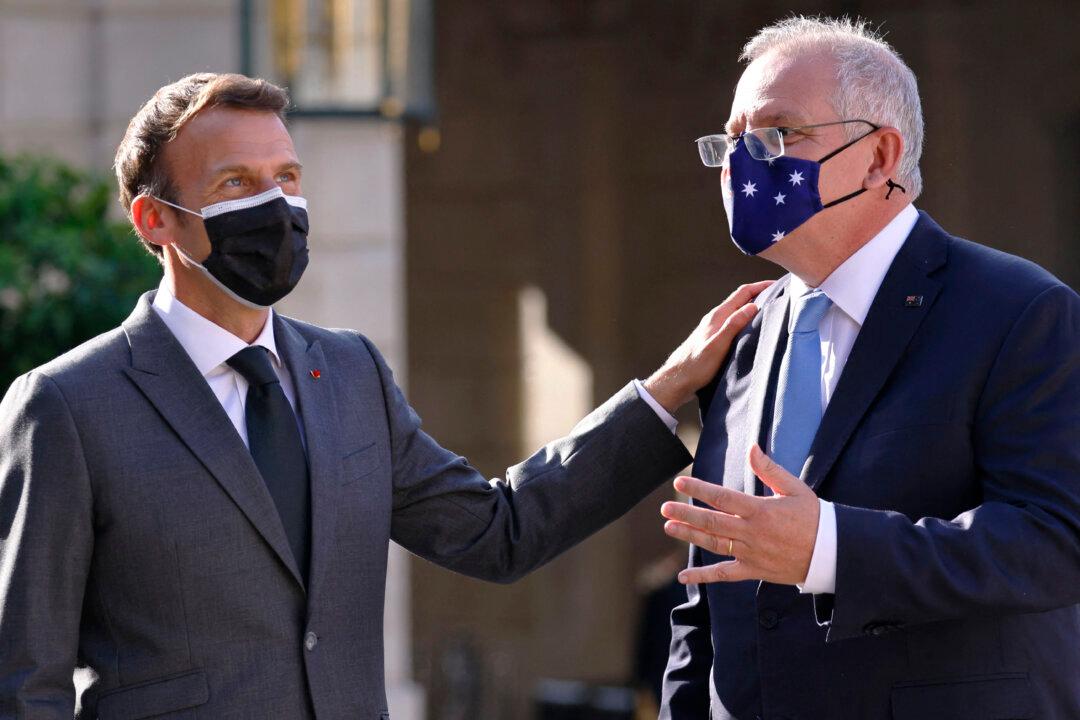Australian Prime Minister Scott Morrison has been forced to explain the circumstances leading up to the cancellation of the AU$90 billion submarine deal with France after extensive criticism from commentators and media outlets.
French President Emmanuel Macron on the weekend accused Morrison of lying to him around the circumstances related to the scrapping of the Future Submarines Program with French defence contractor Naval Group.





